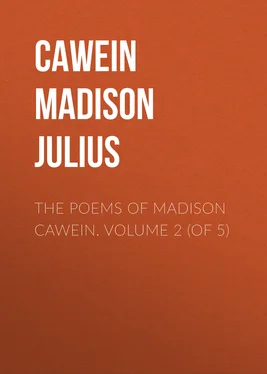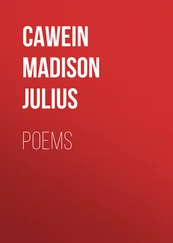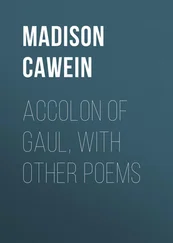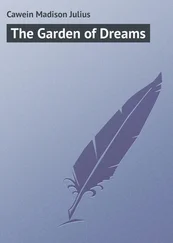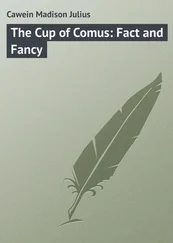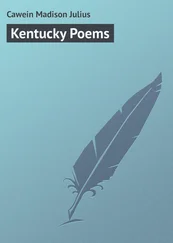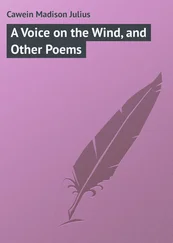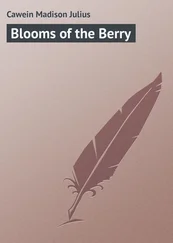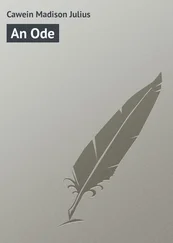There is a sense of frost here,
And winds that sigh alway
Of something that was lost here,
Long, long ago was lost here,
But what, they can not say.
My foot, perhaps, would startle
Some owl that mopes within;
Some bat above its portal,
That frights the daring mortal,
And guards its cellared sin.
The creaking road winds by it
This side the dusty toll.—
Why do I stop to eye it?
My heart can not deny it—
The house is like my soul.
He proceeds on his way:
I bear a burden—look not therein!
Naught will you find save sorrow and sin;
Sorrow and sin that wend with me
Wherever I go. And misery,
A gaunt companion, my wretched bride,
Goes ever with me, side by side.
Sick of myself and all the earth,
I ask my soul now: Is life worth
The little pleasure that we gain
For all our sorrow and our pain?
The love, to which we gave our best,
That turns a mockery and a jest?
Among the twilight fields:
The things we love, the loveliest things we cherish,
Pass from us soonest, vanish utterly.
Dust are our deeds, and dust our dreams that perish
Ere we can say They be !
I have loved man and learned we are not brothers—
Within myself, perhaps, may lie the cause;—
Then set one woman high above all others,
And found her full of flaws.
Made unseen stars my keblahs of devotion;
Aspired to knowledge, and remained a clod:
With heart and soul, led on by blind emotion,
The way to failure trod.
Chance, say, or fate, that works through good and evil;
Or destiny, that nothing may retard,
That to some end, above life’s empty level,
Perhaps withholds reward.
They who die young are blest.—
Should we not envy such?—
They are Earth’s happiest,
God-loved and favored much!—
They who die young are blest.
Sick and sad, propped with pillows, she sits at her window:
When the dog’s-tooth violet comes
With April showers,
And the wild-bee haunts and hums
About the flowers,
We shall never wend as when
Love laughed leading us from men
Over violet vale and glen,
Where the red-bird sang for hours,
And we heard the flicker drum.
Now November heavens are gray:
Autumn kills
Every joy—like leaves of May
In the rills.—
Here I sit and lean and listen
To a voice that has arisen
In my heart; with eyes that glisten
Gazing at the happy hills,
Fading dark blue, far away.
She looks down upon the dying garden:
There rank death clutches at the flowers
And drags them down and stamps in earth.
At morn the thin, malignant hours,
Shrill-voiced, among the wind-torn bowers,
Clamor a bitter mirth—
Or is it heartbreak that, forlorn,
Would so conceal itself in scorn.
At noon the weak, white sunlight crawls,
Like feeble age, once beautiful,
From mildewed walks to mildewed walls,
Down which the oozing moisture falls
Upon the cold toadstool:—
Faint on the leaves it drips and creeps—
Or is it tears of love who weeps?
At night a misty blur of moon
Slips through the trees,—pale as a face
Of melancholy marble hewn;—
And, like the phantom of some tune,
Winds whisper in the place—
Or is it love come back again,
Seeking its perished joy in vain?
She muses upon the past:
When, in her cloudy chiton,
Spring freed the frozen rills,
And walked in rainbowed light on
The blossom-blowing hills;
Beyond the world’s horizon,
That no such glory lies on,
And no such hues bedizen,
Love led us far from ills.
When Summer came, a sickle
Stuck in her sheaf of beams,
And let the honey trickle
From out her bee-hives’ seams;
Within the violet-blotted
Sweet book to us allotted,—
Whose lines are flower-dotted,—
Love read us many dreams.
Then Autumn came,—a liar,
A fair-faced heretic;—
In gypsy garb of fire,
Throned on a harvest rick.—
Our lives, that fate had thwarted,
Stood pale and broken-hearted,—
Though smiling when we parted,—
Where love to death lay sick.
Now is the Winter waited,
The tyrant hoar and old,
With death and hunger mated,
Who counts his crimes like gold.—
Once more, before forever
We part—once more, then never!—
Once more before we sever,
Must I his face behold!
She takes up a book and reads:
What little things are those
That hold our happiness!
A smile, a glance; a rose
Dropped from her hair or dress;
A word, a look, a touch,—
These are so much, so much.
An air we can’t forget;
A sunset’s gold that gleams;
A spray of mignonette,
Will fill the soul with dreams,
More than all history says,
Or romance of old days.
For, of the human heart,
Not brain, is memory;
These things it makes a part
Of its own entity;
The joys, the pains whereof
Are the very food of love.
She lays down the book, and sits musing:
How true! how true!—but words are weak,
In sympathy they give the soul,
To music—music, that can speak
All the heart’s pain and dole;
All that the sad heart treasures most
Of love that ’s lost, of love that ’s lost.—
I would not hear sweet music now.
My heart would break to hear it now.
So weary am I, and so fain
To see his face, to feel his kiss
Thrill rapture through my soul again!—
There is no hell like this!—
Ah, God! my God, were it not best
To give me rest, to give me rest!—
Come, death, and breathe upon my brow.
Sweet death, come kiss my mouth and brow.
She writes to her lover to come to her:
Dead lie the dreams we cherished,
The dreams we loved so well;
Like forest leaves they perished,
Like autumn leaves they fell.
Alas! that dreams so soon should pass!
Alas! alas!
The stream lies bleak and arid,
That once went singing on;
The flowers once that varied
Its banks are dead and gone:
Where these were once are thorns and thirst—
The place is curst.
Come to me. I am lonely.
Forget all that occurred.
Come to me; if for only
One last, sad, parting word:
For one last word. Then let the pall
Fall over all.
The day and hour are suited
For what I ’d say to you
Of love that I uprooted.—
But I have suffered, too!—
Come to me; I would say good-by
Before I die.
The wind rises; the trees are agitated:
Woods that beat the wind with frantic
Gestures and sow darkly round
Acorns gnarled and leaves that antic
Wildly on the rustling ground,
Читать дальше
